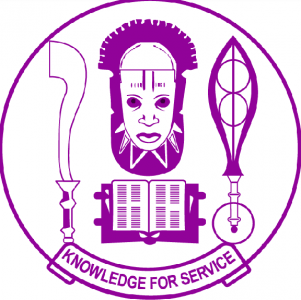The University of Benin popularly called UNIBEN was established in 1970. Initially, the school was named Institute of Technology but in 1971, it was accorded the status of a full-fledged University by the National Universities Commission (NUC).
Subsequently, this led to the change of name of the school from Institute of Technology, Benin to University of Benin. The announcement was made by Col S.O Ogbemudia during his Budget Speech in April 1972.

The optometry program was established in the Faculty of Science that same year. A few years later precisely in 1976, the Optometry Program had become upgraded to a Faculty.
On the 1st of April 1975, the University at the request of the State Government, was taken over by the Federal Government and became a Federal University.
Between 1991 and 1993, following the NUC’s directives, the University experimented with the Collegiate System during this period but the University reverted to the Faculty System except for the Schools of Medicine, Dentistry, Basic Medical Sciences, and Institute of Child Health which reverted to the Collegiate System in August, 1999.
The College of Medicine is divided into three schools. These include Basic Medical Sciences; Dentistry and Medicine; and the Institute of Child Health.
These colleges have a Provost as an administrative head. These faculties include Agriculture, Arts, Education, Engineering, Law, Life Science, Pharmacy, Physical Science, Social Science, and the College of Medical Sciences (which has three Schools:
In January 2006, the Federal Government approved the take off of the College of Petroleum and Gas Engineering of the University of Benin at Effurun, near Warri, in Delta State. The College started with the initial population of 100 students in two departments; Petroleum Engineering and Gas Engineering.
UNIBEN produced the first female vice-Chancellor when Grace Alele-Williams was appointed in 1985 until 1991.
Currently, the University offers courses at various levels which include Postgraduate, Undergraduate, Diploma and Certificate. The total student enrollment stands at over 40,000 made up of both full-time and part-time students shared among the various Faculties.
The University of Benin collaborates with several universities across the world and with both local and international bodies such as USAID, Ford Foundation, UNCF (United Negro College Fund), RMRDC (Raw Materials Research & Development Council of Nigeria) amongst others in the areas of Agriculture, Public Health and Engineering
The motto of the school is Knowledge for Service which is displayed on the school’s logo.
This slogan conveys the primary essence of the school which is to impart the right knowledge needed for service.
As it is with the logo of schools, there is an open book at the centre of the logo. The other elements on the logo depict the history and root of UNIBEN.
The vision of UNIBEN is to establish a model institution of higher learning which ranks among the best in the world and responsive to the creative and innovative abilities of the Nigerian people.
Also, the mission of the university is to develop the human mind to be creative, innovative, competent in areas of specialization, knowledgeable in entrepreneurship and dedicated to service.